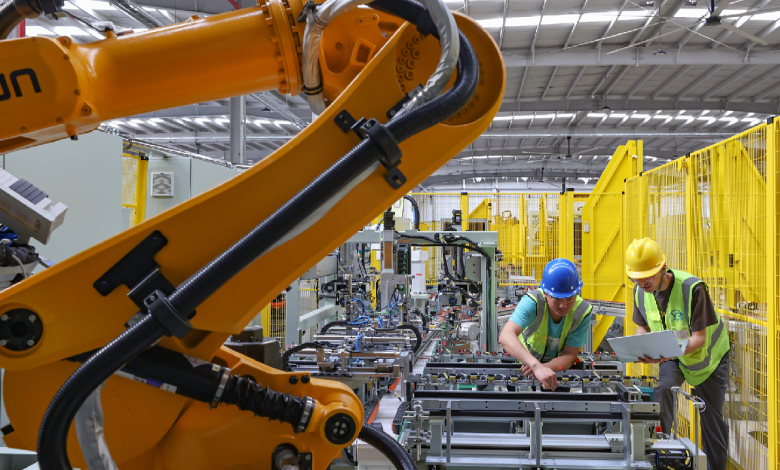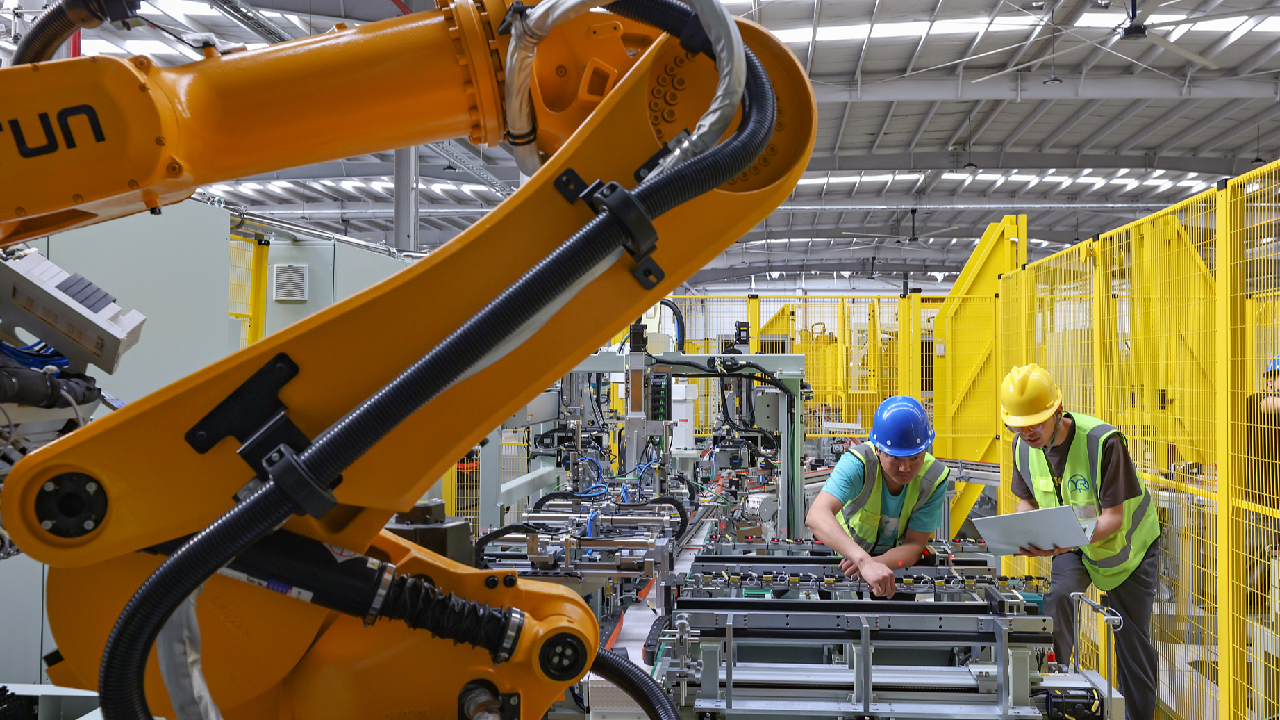Foreign investment expands in China for new quality productive forces


<img src='https://news.cgtn.com/news/2024-08-28/Foreign-investment-expands-in-China-for-new-quality-productive-forces-1wre4rNRgrK/img/7e2c663516a548e8ab170ade581e1575/7e2c663516a548e8ab170ade581e1575.jpeg' alt='Intelligent robot arms support factory production in Kunshan, Jiangsu Province, May 15. /CFP '
Editor’s note: Xue Tianhang is an associate researcher of the Research Center for Regional Coordinated Development, Zhejiang University, and deputy director of the Regional Economic Planning Institute. The article reflects the author’s opinions and not necessarily the views of CGTN. It has been translated from Chinese and edited for brevity and clarity.
Global foreign investment has been on a downward trend in recent years. According to the World Investment Report 2024 published by the United Nations Conference on Trade and Development, global foreign direct investment in 2023 amounted to $1.3 trillion, a year-on-year decrease of 2 percent.
The downturn in global foreign investment has been mainly influenced by two factors. On the one hand, global economic growth has been consistently slow. According to the Global Economic Prospects report released by the World Bank on June 11, global economic growth is expected to stabilize at 2.6 percent, far lower than the average 3.1 percent for the decade before the COVID-19 pandemic. This sluggish economic growth has made transnational companies more cautious about investing abroad.
On the other hand, along with the intensification of international geopolitical tensions, more obstacles are emerging to block cross-border investments. Some developed countries have adopted deglobalization policies, continuously tightening regulations on foreign investments and increasing subsidizies to domestic companies. This has undermined market rules and international economic and trade order, and destabilized global industrial and supply chains, making normal economic and trade exchanges, such as international trade and foreign investment, increasingly challenging.
<img src='https://news.cgtn.com/news/2024-08-28/Foreign-investment-expands-in-China-for-new-quality-productive-forces-1wre4rNRgrK/img/b36e1d9d584f4369aed11afbbca920b7/b36e1d9d584f4369aed11afbbca920b7.jpeg' alt='A heavy vehicle component production line in Luoyang, Henan Province, June 26. /CFP'
Against the backdrop of the continued decline in global FDI, China has consistently optimized its business environment, expanded its opening up, and introduced a series of policy measures to further open up the market. These measures include continuously reducing the negative list for foreign investment access, completely removing restrictions on foreign investment access in the manufacturing sector, and advancing the opening up of the service sector. As a result, the structure of foreign investment utilization in China has noticeably optimized, and its quality has markedly improved.
According to latest data from the Ministry of Commerce, from January to July 2024, China’s actual use of foreign capital exceeded 500 billion yuan ($70 billion), the highest level in the past decade. At the same time, foreign investment is picking up pace in laying out plans for new quality productive forces in fields such as high-tech manufacturing and healthcare, striving to gain a first-mover advantage. In the first half of this year, China’s high-tech manufacturing sector utilized 63.75 billion yuan of foreign investment, accounting for 12.8 percent of the nation’s total actual use of foreign capital, a 2.4 percentage point rise from the same period of last year. Meanwhile, the medical equipment and instruments manufacturing sector witnessed an 87.5 percent year-on-year growth.
Backed by China’s comprehensive industrial supply chain and full-fledged industrial chain systems, foreign enterprises have been able to enter the Chinese market, and in the meantime, share in the dividends of the country’s economic growth. A survey report by the American Chamber of Commerce in South China showed that the surveyed enterprises generally believe they can yield pretty high investment returns in China, with 90 percent of the U.S.-funded companies in China being profitable. This is a key driver for transnational companies to continue increasing their investment in the country and fully demonstrates the strong appeal of the Chinese market to foreign enterprises.
China will only open its doors wider to the world. The third plenary session of the 20th Central Committee of the Communist Party of China has made strategic deployments around opening up, emphasizing that the nation will facilitate high-standard opening-up systems and mechanisms, comprehensively eliminate restrictions on foreign investment access in the manufacturing sector, and promote orderly opening up of sectors such as telecommunications, education, culture, and healthcare. In the future, China will resolutely align with the trend of economic globalization, continuously improve investment environment, broaden investment channels, and provide policy support for more foreign-funded enterprises to develop in China, thus sharing with investors worldwide the country’s development opportunities.





